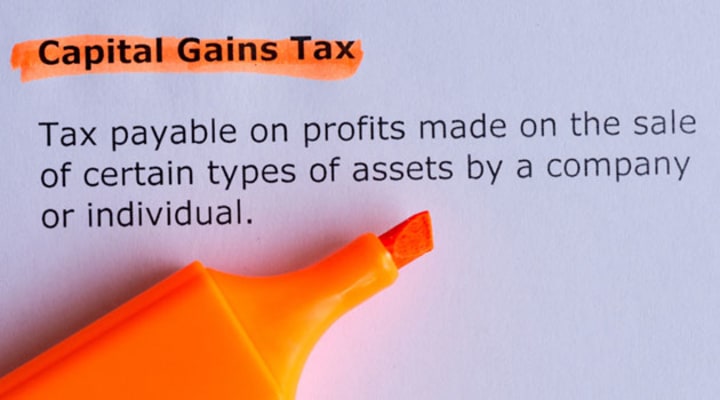What It Is That You're Liable to Pay on the Sale of Assets
I'll briefly outline the issues and do just that.

Sale of Assets
Capital gain tax in the UK is often misunderstood. It's important to know what it's all about and how it works. CGT is a complex subject to navigate and give you some extra guidance. Here, I'll briefly outline the issues and do just that.

A profit or loss can be shown as either "income"loss". An income is income from the sale, exchange, or the giving away of an asset. The gain from selling or trading an asset is referred to as "profit". If, on the other hand, the asset is given away or exchanged, the "loss" is called "net loss". The difference between these two concepts is the amount of taxable income or taxable gain.
There are two ways that you can show the amount of taxable income or gain:
Who is liable to pay tax and the amount of taxable gain. The liable to pay tax part of the equation means what it is that you need to pay tax on. If you have taken any deductions, the amounts will have been included in your income. In order to make sure that your total income is taxable, you'll need to make sure that all taxable income amounts are subtracted from the total taxable income you're entitled to claim. You can do this by taking an average of the taxable incomes of the people who are liable to pay tax and dividing them by the total number of them.
Pay Capital Gain Tax
Another way that you can determine who is liable to pay capital gain tax is the amount of taxable gain or profit of a company. This means, in plain English, that you need to determine how much you need to pay tax on the profit or loss. You'll need to take into account the gains or losses of other people with whom you've traded with and you must include their gains and losses to calculate your own profit or loss.

Capital gain tax can also come into play if you are self-employed. If you're self-employed, you'll have to pay tax on your own profits and your profits of others that you've taken out on loans with. Your gains of the other person's loans, mortgages, and any profit that you earn on the sale or exchange of the property will need to be included in your profits.
Tax Rates Calculating
When calculating what you pay on the sale of an asset that you bought, you'll have to include your expenses such as the cost of repairs, taxes, and interest as well as any other T/C fees, if any. This means that you will have to deduct the full cost of the asset. Any T/C fees that are applied for the loan or any other expense will have to be included in the amount of what you pay on the sale, not just the interest.
To figure out what the tax you pay on an asset is, you need to determine what the rate of tax is at the time the transaction is complete. Tax rates are always higher at the end of the year, because the end of the year is the end of the year when most individuals make a large number of transactions.
If you are liable to pay capital gain tax, you will need to know what it is that you're liable to pay for. There are many aspects to paying taxes that you can't change. You could be liable for some things but can deduct some of them.
When you pay capital gain tax, you're also responsible for paying tax on any income that you earn on your profits. The amount of tax that you pay depends on the tax rate that was in effect at the time the profit was earned. This means, even if you had a lower tax rate in 2020, you'll have to pay more tax this year than you did in 2020. If you had a high tax rate. The amount that you pay to pay capital gain tax depends on the total value of the assets at the time you made the profits.





Comments
There are no comments for this story
Be the first to respond and start the conversation.